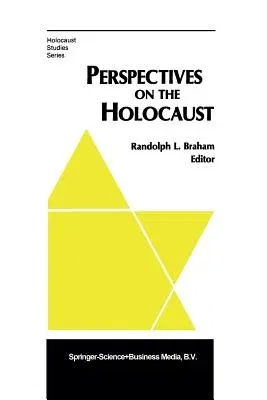Perspectives on the Holocaust (Softcover Reprint of the Original 1st 1983)Paperback - Softcover Reprint of the Original 1st 1983, 3 October 2013

Qty
1
Turbo
Ships in 2 - 3 days
In Stock
Free Delivery
Cash on Delivery
15 Days
Free Returns
Secure Checkout
Part of Series
Holocaust Studies
Print Length
168 pages
Language
English
Publisher
Springer
Date Published
3 Oct 2013
ISBN-10
9401568669
ISBN-13
9789401568661
Description
Product Details
Book Edition:
Softcover Reprint of the Original 1st 1983
Book Format:
Paperback
Country of Origin:
NL
Date Published:
3 October 2013
Dimensions:
23.39 x
15.6 x
0.99 cm
Genre:
1940's
ISBN-10:
9401568669
ISBN-13:
9789401568661
Language:
English
Location:
Dordrecht
Pages:
168
Publisher:
Series:
Weight:
267.62 gm

